|
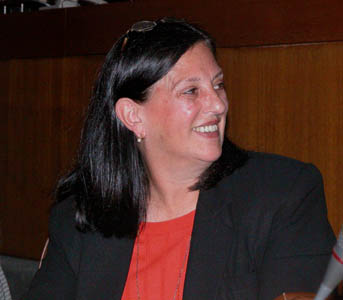
|

|
|
 Edith
Allison (US Department of Energy) (above) gave a
presentation on gas hydrates and stressed that the energy
contained in gas hydrates is double that of other fossil
energy sources.
Edith
Allison (US Department of Energy) (above) gave a
presentation on gas hydrates and stressed that the energy
contained in gas hydrates is double that of other fossil
energy sources. |
 John
Stegeman (Woods Hole Oceanographic Institution)(above)
presented on potential practical uses of marine genetic
resources, including as: pharmaceutical agents; biomolecular
materials; and materials for biomedical research.
John
Stegeman (Woods Hole Oceanographic Institution)(above)
presented on potential practical uses of marine genetic
resources, including as: pharmaceutical agents; biomolecular
materials; and materials for biomedical research. |
|
|
STATEMENTS:
LEGAL FRAMEWORK
|
|
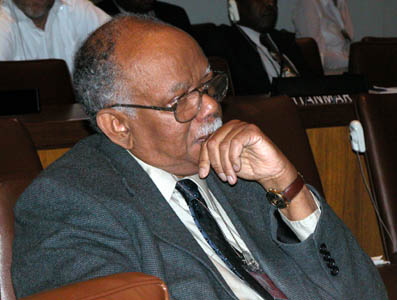
|
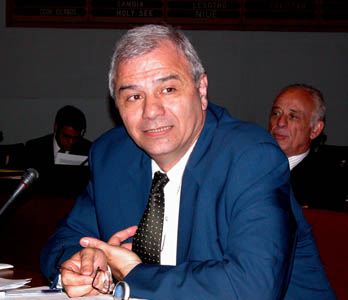
|
|

GUYANA stressed that the UN Convention on the Law of the
Sea (UNCLOS) is the legal framework to regulate activities
in the high seas. Above photo: Walter Stewart
(Guyana) |
FRANCE
stressed that UNCLOS does not specifically state
that seabed biodiversity is part of the common heritage of
mankind, only that these resources need to be protected.
Above photo: Elie Jarmache (France)
|
|
DESTRUCTIVE
PRACTICES:
|
SCIENTIFIC
RESEARCH:
|
|
|
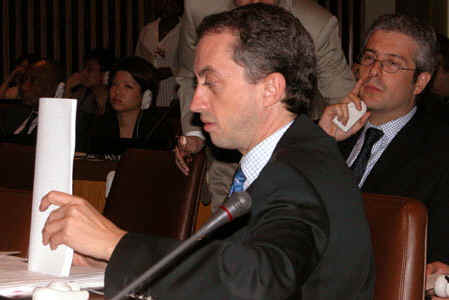
|
|
CUBA expressed support for any initiative aimed at
addressing the adverse effects of high seas bottom
trawling.
Above photo: Juana Elena Ramos (Cuba)
|
MEXICO
suggested calling upon the UN General Assembly to adopt a
declaration encouraging scientific research in the Area. Above photo: Juan-Manuel Gomez
Robledo (Mexico)
|
|
|
|
|
PLENARY:
AREAS
OF CONCERN AND ACTIONS NEEDED: Flag
State implementation
|
|
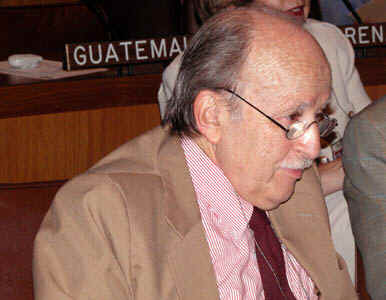
|
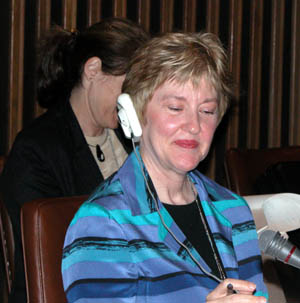
|
|

CHILE stressed the
need to assert the ‘genuine link’ between a flag State
and vessels flying its flag. Above photo: Fernando Zegers
(Chile) |

The US expressed support for strengthening existing
mechanisms regarding flag State implementation. Above photo:
Margaret Hayes (US) |
|
|
|
|
Deep
sea biodiversity in areas beyond national jurisdiction:
|
|
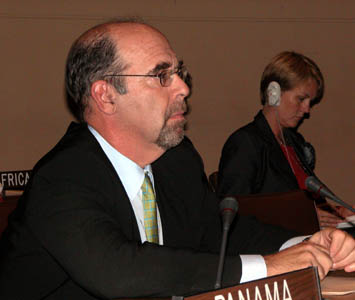
|
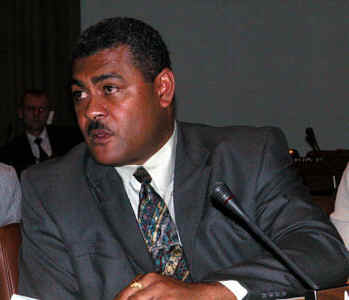
|
|

PALAU recommended
convening an intergovernmental conference to discuss
measures to effectively manage and conserve biodiversity in
areas beyond national jurisdiction. Stuart Beck
(Palau) |
FIJI
welcomed the International Seabed Authority’s (ISA)
approach to ensure minimum interference with deep sea
biodiversity. Above photo: Sainivalati Navoti (Fiji)
|
|
|
Side Event:
Deep
Sea Fisheries and the Conservation of High Seas Biodiversity
Chaired by Lee Kimball (IUCN)
|
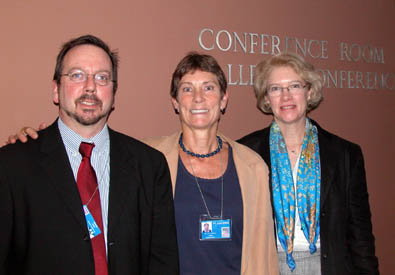
Above photo L-R:
Matthew Gianni, Lee Kimbal and Kristina Gjerde |
Dan Ogolla, Convention on Biological Diversity (CBD),
reported on the seventh Conference of the Parties to the CBD,
noting progress made at COP-7 regarding marine protected
areas (MPAs), deep seabed genetic resources and the
conservation and sustainable use of marine biodiversity
beyond areas under national jurisdiction. Ogolla stressed
the recognition for cooperation in respect of these areas
and the need for immediate and long-term measures to protect
seamounts, hydrothermal vents, cold water corals and other
vulnerable ecosystems. He highlighted COP-7’s call to the
UN General Assembly and other relevant international
organizations to take short, medium- and long-term measures
to avoid and eliminate destructive practices consistent with
international law, including through an interim prohibition
of destructive practices or the use of MPAs.
|
|
|
|
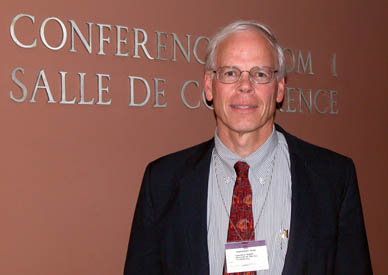
Laurence Madin, (left) Woods Hole Oceanographic
Institute, presented the ecological characteristics and
vulnerability of deep sea ecosystems, noting that out of the
30,000 to 100,000 seamounts around the world, very few have
been sampled so far and that less than half lie within
Exclusive Economic Zones. He explained that seamounts are
oasis of the oceans, which attract many fish and marine
mammal species, of which many are slow growing and
long-lived. He said that too little is known yet to develop
plans for a sustainable harvest and that uncontrolled
exploitation prevents from understanding their functioning.
Matthew Gianni (above), Consultant, gave a presentation on deep
water fisheries in the high seas and the UN General
Assembly’s initiatives to address their impact on deep sea
biodiversity. He noted that there are no global statistics
on high seas catch, but that 11 countries, mostly OECD
countries and Parties to the 1995 UN Fish Stocks Agreement.
He said deep water fisheries concentrate in the North West
and North East Atlantic, the South West Indian Ocean and the
Tasmanian Sea, and are mainly illegal, unreported and
unregulated fishing (IUU). Gianni stressed difficulties with
implementing the Fish Stocks Agreement, the FAO Code of
Conduct on Responsible Fisheries and the CBD, and called for
reasserting the global commons character of the high seas.
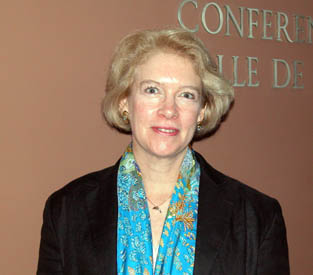
Kristina Gjerde, (left) IUCN, presented options for
addressing deep sea bottom trawling. She stressed gaps in
governance, noting that few regional fisheries organizations
have competence and that the UN Fish Stocks Agreement only
covers straddling stocks. She said short-term options
include a UN General Assembly resolution prohibiting high
seas bottom trawling for an interim period, and the
establishment of a working group to develop guidance
regarding fisheries in the continental margin. Gjerde said
medium-term options include the development of supplementary
regional agreements and a reform of existing regional
organizations. She noted that alternatives include the
development and selective application of environmentally
safe gear and practices and the establishment of closed
areas.
|
|
|
|
|
Deep
Sea Conservation Coalition: Natural Resources Defense
Council, Greenpeace Oceana, and Pew Charitable Trust |
|
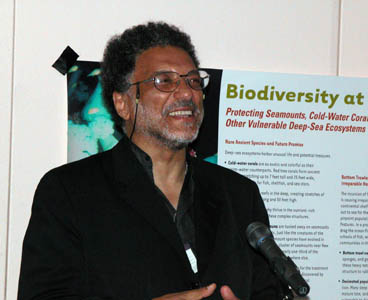
Delegates
to the fifth meeting of the UN Informal Consultative Process on
Oceans and the Law of the Sea (Consultative Process) were
invited to a Wine and Cheese reception for Deep Sea
Protection . Presentations by Professor Daniel Pauly
(University of British Columbia) (left)and Karen Sack (Greenpeace)
(below left) were introduced by Karen Beinecke (NRDC) (below
right). Professor Pauly
noted the rich biodiversity of the sea mounts and stressed
its fragile nature, while Karen Sack called for an
immediate moratorium of bottom trawling. |
|
|
|
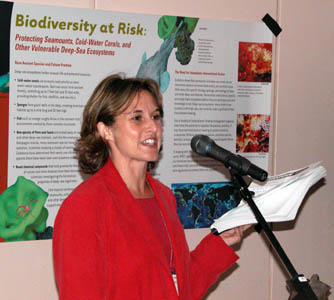
|
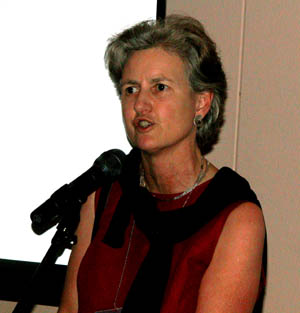
|
|
|
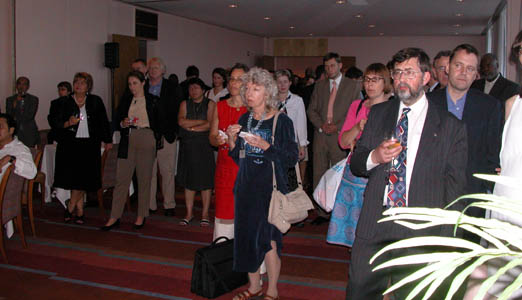 |
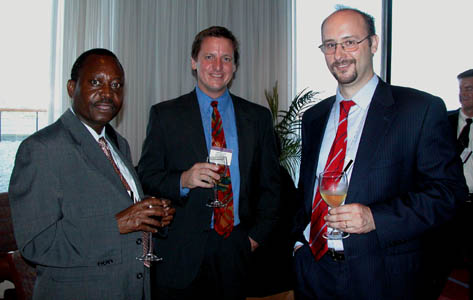
|
|
|
|
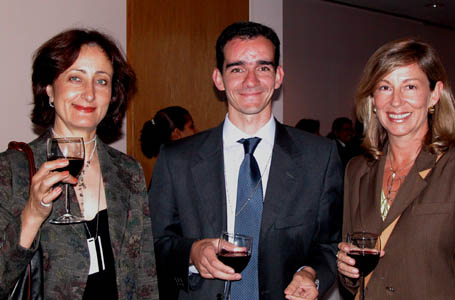
|
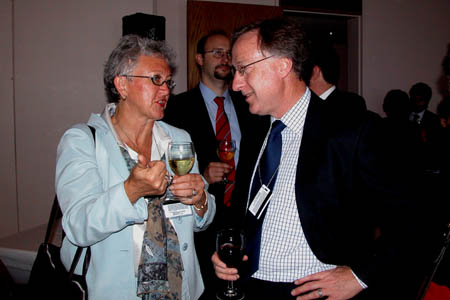
|
|
|
|
|

